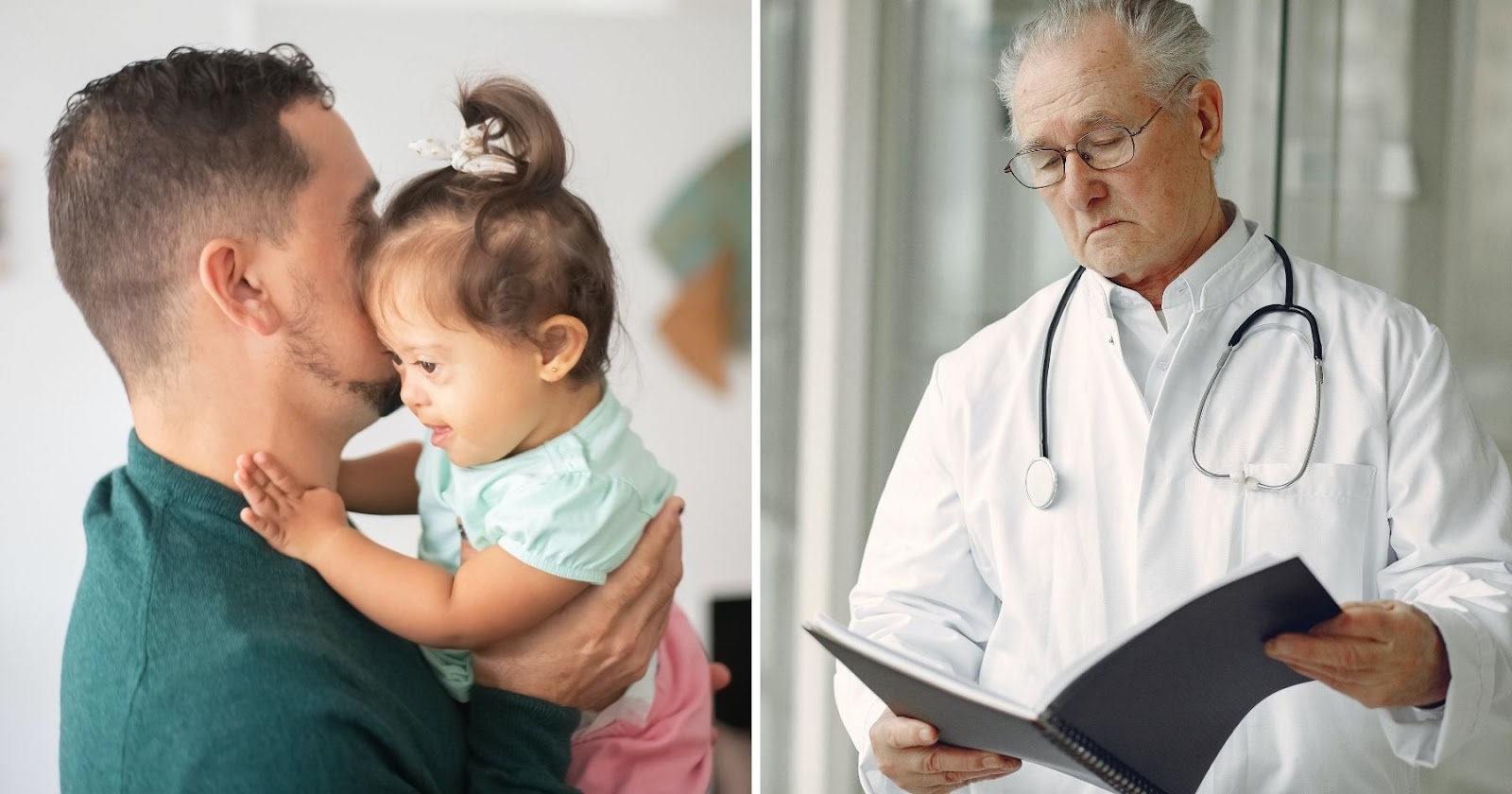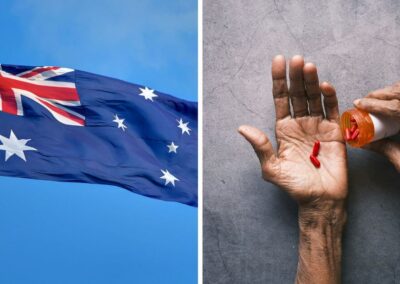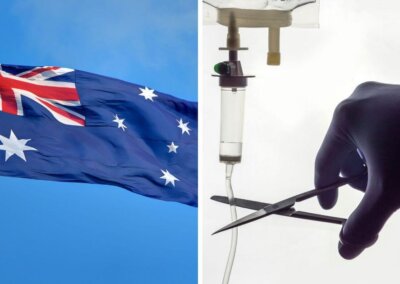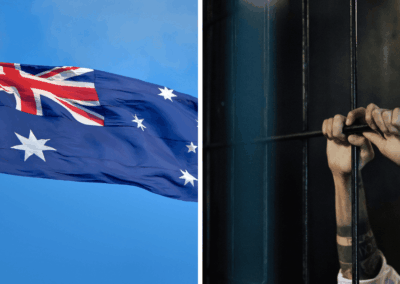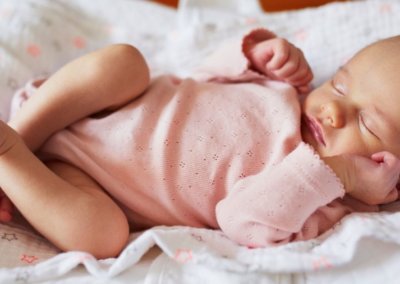Almost one in two families in New South Wales, Australia who have a child with Down’s syndrome felt pressured by doctors to have an abortion when the condition was diagnosed in the womb, including one mother who found out when she heard of her baby’s diagnosis that she had already been booked in for an abortion.
According to a new survey of 320 parents from New South Wales, Australia, by Down Syndrome Australia (DSA), 49% of families felt pressured by healthcare providers to have an abortion after the condition was prenatally diagnosed, 42% said they had received negative information about Down’s syndrome and 45% of families felt they had not received appropriate support during pregnancy.
The doctor told her that he had already booked her in for an abortion.
Zoey O’Hehir, who has a nine-month-old daughter, Arlee, with Down’s syndrome, described her experience of being pressured to have an abortion.
She received a phone call in the middle of a class she was teaching, which informed her that her unborn child had been diagnosed with Down’s syndrome. The doctor told her that he had already booked her in for an abortion.
“It was very scary and just the mention of termination struck a nerve”, Ms O’Hehir said. “Before I could say anything, before I could process anything or even breathe [he’d scheduled the termination]”.
Ms O’Hehir and her husband, Jake, both now 28, had been trying for a baby for three years.
After receiving the prenatal results, the parents met with their doctor and were given a Down’s syndrome fact sheet but said the care in the weeks following was “minimal” and “next to nothing”. The couple were told to “expect the worst” and given three possibilities for their baby with Down’s syndrome: lifelong dialysis treatment, stillborn or neonatal death.
However, they ignored the pressure and unhelpful input from their doctors and decided to proceed with the pregnancy. Their daughter, Arlee, is now nine months old.
Ms O’Hehir said she was meeting all her milestones and had exceeded everyone’s expectations. “She’s amazing and has brought so much happiness to our life. She may have a little bit of low muscle tone, which comes with Down syndrome, but other than that she’s honestly just like a normal baby”.
They were told their child would be a “massive burden” and might “destroy” their marriage.
Another mother of a child with Down’s syndrome, Julia Laine, discovered her son had the condition when a heart problem was found at her 20-week scan.
“We were in shock”, Ms Laine said. “We were sitting alone in the room, just in complete disbelief, because we didn’t think anything along those lines. We just thought we were going to see a healthy little baby”.
“The doctor said, ‘We can fix your son’s heart but there’s no way we’ll ever be able to fix the fact your son has Down syndrome'”, Ms Laine said.
“It was pretty traumatic because I didn’t care if he had Down syndrome — if his heart could be fixed, then he was worthy of life”.
Ms Laine said they were told their child would be a “massive burden” and might “destroy” their marriage. “It was completely awful and biased information that was given to us”.
She said that in her view, “[The doctors] didn’t think his life was worthy. I couldn’t believe I was hearing that from someone who was a doctor and supposed to be providing care to us”.
Their son, Grayson, is now three and an energetic and cheeky toddler.
“He has completed our family and I couldn’t imagine our lives without him”, she said.
System not working
DSA chief executive Ellen Skladzien, who led the research, said the results were “shocking” and revealed a system that was not working.
“To hear families being repeatedly asked about termination and not supported in their decision [to proceed with the pregnancy] is a case of neglect”, Dr Skladzien said.
“We heard about doctors who told families that their child would have a lifetime of suffering or that they would never achieve anything”.
In Australia, as in the UK, around 90% of babies with Down’s syndrome are aborted when the condition is discovered in prenatal testing.
In a statement, the Royal Australian and New Zealand College of Obstetricians and Gynaecologists (RANZCOG) admitted that the way a Down’s syndrome diagnosis was communicated influenced parents’ choices.
Down’s syndrome abortion pressure in the UK
In the UK, the Royal College of Obstetricians and Gynaecologists (RCOG) along with the Royal College of Midwives and the Society and College of Radiographers have released guidelines emphasising the importance of a non-directive approach to prenatal screening for Down’s syndrome, Edwards’ syndrome and Patau’s syndrome.
The guidelines stress throughout that the results of prenatal testing should be given and discussed in a “non-directive” manner, such that, whether a test indicates that a baby has Down’s syndrome or not, no parent should feel pressured into a decision about whether or not to have an abortion.
“These options should be provided in a non-directive manner and their choices should be accepted, noted and respected by the medical staff”.
The emphasis on a non-directive approach occurs within the context of some parents who decide they do not want an abortion “being asked repeatedly if they want further diagnostic tests or an abortion”.
“[These parents] report having their decisions challenged and being pressured into changing their minds”.
The guidelines go on to state: “This should not happen”.
“Parents should have the scope to change their minds, but not be pressured into doing so – their decisions should be accepted and respected at all times”.
Right To Life UK spokesperson, Catherine Robinson, said: “That 49% of families felt pressured by healthcare providers to have an abortion after they discovered their unborn child had Down’s syndrome is appalling. The stories told by women being pressured to have an abortion are disgusting and the doctors who are pressuring women in this way should be ashamed of themselves”.
“The data from the UK and Australia indicates a deep-seated prejudice against people with Down’s syndrome that does not belong in a civilised society”.


